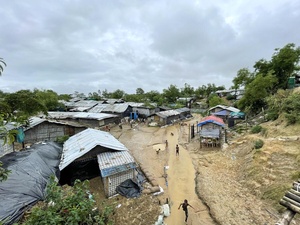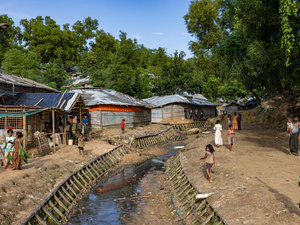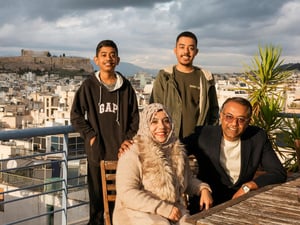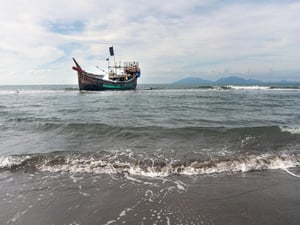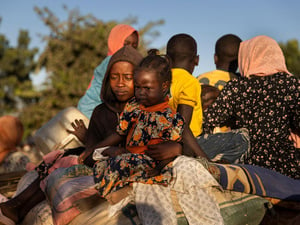Asian civil society mobilizes in support of refugee rights
Asian civil society mobilizes in support of refugee rights

Muslim female refugees from Myanmar sit on the porch of their home at a camp in Bangladesh. The UNHCR-backed Asia Pacific Refugee Rights Network advocates for greater refugee rights.
BANGKOK, Thailand, October 12 (UNHCR) - With more refugees on the move but few Asian countries giving them a warm welcome, representatives of civil society and non-governmental organizations from 19 Asian and Pacific countries have met in Thailand to strategize on how to press for greater refugee rights.
The second meeting of the UNHCR-backed Asia Pacific Refugee Rights Network (APRRN), which wrapped up last Saturday, brought together more than 100 individuals representing advocacy groups from a broad region where protection of refugees often depends on political discretion rather than written laws.
"Much of Asia is a vacuum in terms of asylum law and institutions," Raymond Hall, UNHCR's regional representative and regional coordinator for Southeast Asia, told the opening session. "Our strategy should be to encourage governments to change this and to take a greater degree of ownership over refugee protection.
"With large-scale irregular migration and increasing numbers of people seeking asylum, the day may come when governments close down the fragile protection space that does exist," he warned.
Groups within the APRRN campaign for an end to detention of refugees - a major problem in many Asian countries - and try to improve refugees' access to basic services, such as health care. They also fight to ensure refugees' access to legal aid, and look out for the rights of girls and women.
Eileen Pittaway, director of the Centre for Refugee Research in Australia, advised refugee advocates to be cautious in how they represent refugees: "We can assist them in making their voices heard, not speak for them."
Tom Vargas, UNHCR's Bangkok-based senior regional protection officer, said he was pleased with the growth of the network since its establishment a year ago in the Malaysian capital, Kuala Lumpur. "We are very enthusiastic about working with them," he stressed. "They can add new impetus to advocacy for asylum-seekers at the national and regional level."
Vargas said the big change "is that NGOs have usually focused on the rights of their own nationals, but now they are fighting more for the rights of non-nationals, for refugees."
In a dialogue with UNHCR, representatives of the NGOs and civil society groups expressed concern that many refugees in Asia have trouble getting identity cards and are subject to arbitrary arrest and detention.
"We are functioning in a region," Hall agreed, "where asylum-seekers and refugees have little legal protection, and where an asylum-seeker is almost by definition an illegal immigrant in the eyes of the law."
By Kitty McKinsey
In Bangkok, Thailand



